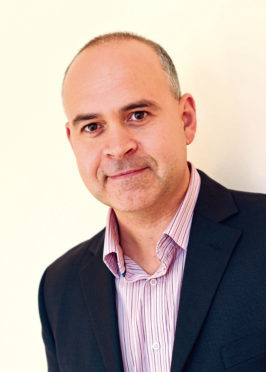Most of us casually talk about ‘being obsessed’ with a new song/ book/food or being “a bit OCD” about cleaning the house before guests arrive, for example.
Fear not, it’s perfectly normal to like your house to be clean, get stuck into a book and forget the world around you or re-order your favourite dish again and again.
People suffering from genuine obsessive-compulsive disorder (OCD) find that their disorder interferes with their lives, both professionally and socially.
October 7 to 13 is OCD awareness week.
Obsessions in the clinical sense are recurring, unwanted thoughts, feelings or ideas that a person cannot ‘turn off’ and that cause anxiety.
They lead to compulsions – repetitive behaviour such as washing hands, walking in and out of the same door or checking on things repeatedly in order to address the obsession.
Compulsions may take up hours of someone’s day and stop them from doing things they wanted to do.
The important difference here is that a person suffering from OCD would rather not have to repeat their compulsive actions, but finds they are the only way of coping with their obsessions.
It’s quite a difference compared to wanting your clothes arranged neatly, playing the same song over and over again or researching every single bit of information about your favourite actor.
The Royal College of Psychiatrists estimates that about one on 50 people suffers from OCD at some point in their life. Men and women are affected equally, and there are a number of famous names among sufferers including Charles Darwin and David Beckham.
OCD often starts during teenage years or during the early twenties. Whilst most kids display some compulsions like avoiding cracks on the pavement, these usually disappear.
Stressful events or big life changes can trigger OCD, and it can also be inherited. If you are a very neat person or a so-called perfectionist, you’re more likely to take things a step too far and develop OCD.
So, what to do if you think you are suffering from OCD? There are a number of ways of helping yourself. One would be to expose yourself to a troubling thought, for example, but then resisting the compulsive action you would normally choose to make the thought go away.
If you’ve been suffering from OCD for a while, professional help or guidance for your own self-help programme is more effective.
Psychologists address OCD by teaching you to face your fears, known as Exposure Response Prevention and Cognitive Behaviour Therapy. In severe cases, medication or a combination of treatments may be recommended.
Friends and family can help, too. Usually, the first step here is to find out more about the condition itself.
Providing encouragement to deal with the sources of anxiety can go a long way.
Strange as it may sound, you often help more by no longer helping with compulsive rituals such as repeated checking. At the same time, it’s important to try and stay patient with the person performing those rituals.
Remember, they also would rather not feel forced into what might look like a frustrating routine.
Either approach will take some time, but it’s worth persevering as mild OCD can go away completely, and even in severe cases, those affected can learn to deal with their symptoms and return to a normal life.
Professor Ewan Gillon is a Chartered Psychologist and Clinical Director of First Psychology Scotland with centres in Aberdeen, Inverness, Dundee, Perth, Glasgow, Edinburgh and Borders.










